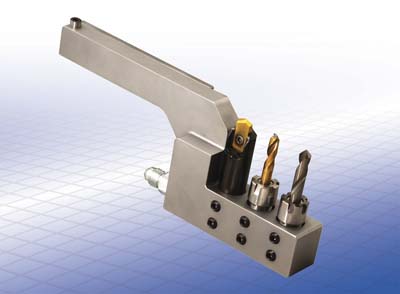The GenBore
The GenBore
GenSwiss has introduced the GenBore ID Triple Tool Holder that adds three ID tool stations in place of a standard OD turning position on most Swiss-Type CNC machines.

GenSwiss has introduced the GenBore ID Triple Tool Holder that adds three ID tool stations in place of a standard OD turning position on most Swiss-Type CNC machines. With The GenBore Tool Holder ID work can be expanded to include spotting, boring or drilling, all from one position for more cost-effective machining of complex parts. The tool holder features easy integration of high pressure coolant delivery systems, and can be configured for thru-coolant delivery through one, two or all three tool positions. The GenBore includes (3) ER11 5⁄8" shank collet sleeves, removable location screw to re-position the holder on the gang plate, and set screws on both sides of the holder to suit RH and LH machine layouts. The ½" shank includes shim-plate for machines using 5⁄8" shank tooling. When required, The GenBore can be easily removed returning to a standard OD turning position to suit specific machining requirements.





